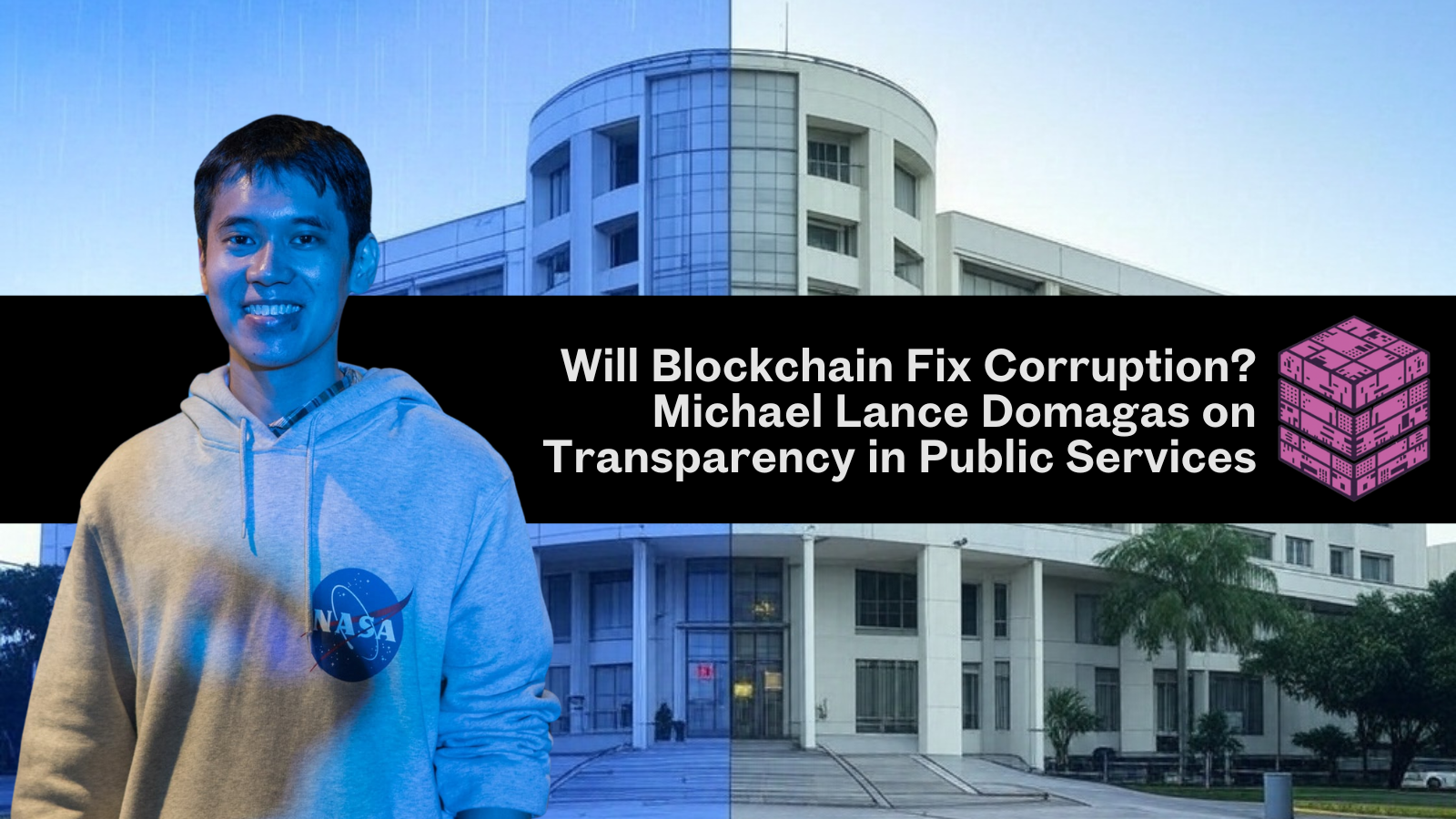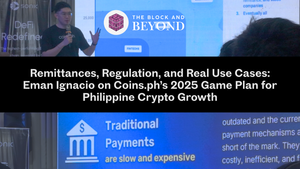Blockchain technology is often praised for its ability to provide transparency and security, but can it help combat corruption in government operations? As governments struggle with accountability issues, blockchain is being explored as a potential solution to prevent fraud and ensure financial integrity in public services.
One of the major challenges in public governance is ensuring that records remain accurate and tamper-proof. In the Philippines, issues with land title fraud and mismanagement of government funds continue to raise concerns. Blockchain could provide a solution by offering a system where records are immutable and verifiable. This kind of blockchain adoption aligns with the growing interest in Web3 governance and digital transformation in Southeast Asia.
Michael Lance Domagas, a member of the Blockchain Council of the Philippines and and a Web3 advocate actively engaged in digital policy consultations, believes blockchain has the potential to improve accountability in public services, particularly in areas like land titling, taxation, and budget tracking.
"Land titles would need for a more robust mode of authentication, especially as real estate properties increase in value. The principle of public notaries, which is a form of witnessing and verification that a document exists, serves as an inspiration for blockchain."
By placing land titles on a blockchain, ownership records could become permanent and easily verifiable, reducing the risk of fraudulent claims. The same principle could be applied to government budgets and taxation, ensuring that transactions are traceable and transparent. This transition would represent a foundational shift in digital public infrastructure for emerging economies.
"Taxation and budget disbursement can be monitored transparently through blockchain, deterring fraud, corruption, and the misuse of public funds."
Framework for Transparency
Blockchain could allow the public to track government spending in real-time, making it more difficult for funds to be misallocated or siphoned off. This level of transparency could increase public trust in institutions and hold officials accountable for financial decisions.
However, while blockchain presents a promising framework for accountability, its implementation in government operations comes with challenges. Questions remain about how it would be integrated into existing systems, and whether policymakers are willing to adopt decentralized solutions.
Despite these hurdles, Domagas sees blockchain as a powerful tool for improving governance.
"There are a lot of information needing more disclosure, like public policies, scientific researches, and financial transactions (except for classified military and intelligence information), and blockchain might be of help."
In fact, the Philippines has already taken its first step into blockchain-powered governance with the launch of eGOVchain in 2024, the country’s first government blockchain, according to CoinGeek. This marks the first national attempt at integrating blockchain into Philippine governance.
Announced by Department of Information and Communications Technology (DICT) Undersecretary David Almirol Jr., the initiative was introduced during the kick-off of National ICT Month 2024 at the Philippine International Convention Center (PICC) in Pasay City.
Designed to improve transparency, security, and efficiency in government services, eGOVchain aims to modernize public sector operations by leveraging blockchain’s immutability. eGOVchain, according to Almirol, will be the Philippines' first government blockchain, emphasizing its role in fostering greater trust in digital governance.
While blockchain alone cannot eliminate corruption, its potential to increase transparency and provide a tamper-proof record-keeping system makes it a valuable tool for improving public service accountability. Whether governments will fully embrace the technology remains to be seen.











